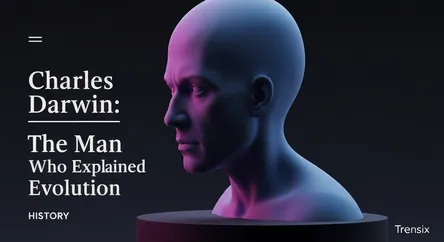History
Charles Darwin: The Man Who Explained Evolution

Discover Charles Darwin, the English naturalist whose groundbreaking theory of evolution by natural selection forever changed our understanding of life on Earth.
What is it?
Charles Darwin was an English naturalist, geologist, and biologist who is celebrated as the architect of the theory of evolution by natural selection. In his groundbreaking 1859 book, "On the Origin of Species," he proposed that all forms of life descended from a common ancestor. Darwin argued that this branching pattern of evolution resulted from a process called natural selection, where organisms with traits better suited to their environment are more likely to survive and reproduce. This simple yet powerful idea became the unifying theory for all life sciences.
Why is it trending?
Darwin's 19th-century ideas are more relevant today than ever. His theory is the bedrock of modern biology and is critical in tackling contemporary challenges. Scientists use evolutionary principles to understand antibiotic resistance in bacteria and the mutation of viruses like COVID-19. Furthermore, his work provides a crucial framework for predicting how species might adapt, or fail to adapt, to rapid climate change. The core concept of adaptation in a changing world ensures Darwin's work remains a central topic in science and society.
How does it affect people?
Darwin's theory fundamentally altered humanity's perception of itself, positioning humans as part of the natural world rather than separate from it. This shift has had profound and lasting effects on philosophy, religion, and society. While his ideas have been controversially misused to justify social theories like eugenics, his scientific contribution is vital. It provides the basis for modern medicine, genetics, and conservation efforts, helping us protect biodiversity and fight diseases, demonstrating a lasting impact on human well-being and our understanding of the planet.